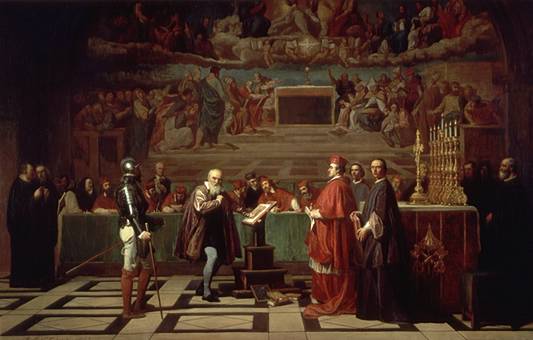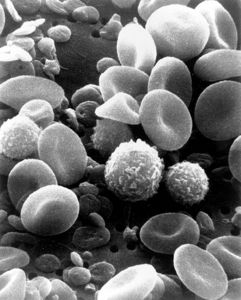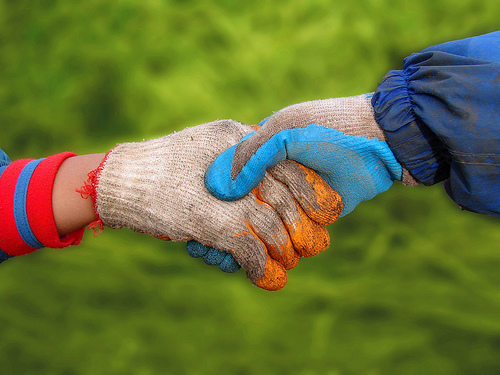
Source: http://library.thinkquest.org
The Galileo affair, depicted above in a painting by Joseph-Nicolas Robert-Fleury, is a favorite example of how science and religion are destined to be in perpetual conflict. According to the popular retelling, the trial pitted Galileo, the champion of science, against the Catholic church, upholders of scripture and faith. If these two sides could not agree then, what hope do science and religion have of harmonizing today?
However, in his article “The Pursuit of Science in a Christian Context: Modeling Dialogue Rather Than Warfare“, Randy Isaac cautions us about simplifying events like the Galileo affair down to the fact that science and religion are perpetual adversaries:
“In Galileo’s case, for example, he and his principal Vatican opponent,
Robert Cardinal Bellarmine, agreed that the Bible should not be
reinterpreted without absolute proof of the earth’s motion. Galileo
thought he had such proof, but his arguments, based on the phases of
Venus and the cause of the tides, were logically flawed and he pushed
them beyond their real force. In the process, he personally insulted
his longtime friend, Pope Urban VIII, who retaliated by summoning
Galileo to Rome to face charges of heresy. In short, there was plenty of blame to go around. It was not simply a matter of ‘science’ versus ‘religion.'”
Certainly, when science and religion meet, sparks sometimes do fly. But, as Isaac astutely realizes, such “headlines do not tell enough of the story.” Instead, his article encourages understanding and dialogue between the two sides.
Isaac’s article is available in its entirety from The Trinity Forum’s website. Also, be sure to check out our other featured readings at BioLogos.org for more reflections on the relationship between science and religion.

